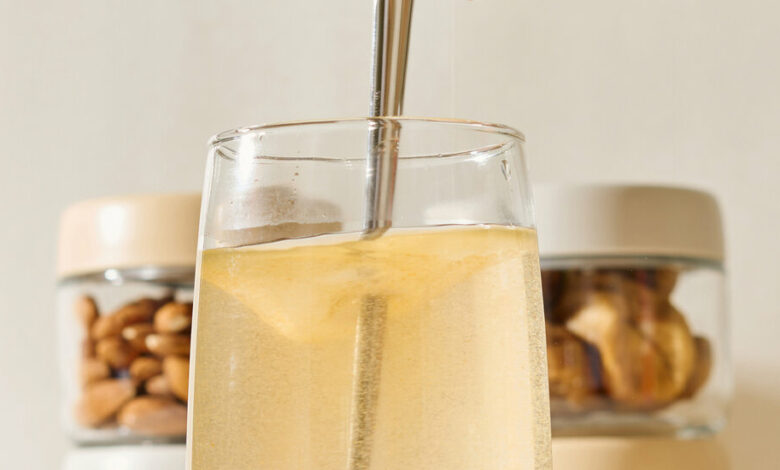Is a fiber supplement as effective as dietary fiber?

Q: I take a daily fiber supplement, but I’m wondering if it provides the same health benefits as a high-fiber diet. Is it just as good to get fiber from a supplement?
It depends on your definition of “good,” said Dr. Denise Millstine, an integrative medicine physician at the Mayo Clinic. If your goal is to improve your bowel movements or to reduce certain digestive symptoms (such as constipation, diarrhea, bloating or cramping), she said, fiber supplements can often help.
But they don’t contain the same vitamins, minerals and other beneficial substances as high-fiber foods, she noted.
Fiber is a nutrient that our digestive system can’t break down. This slows the movement of food through the digestive tract, helping to reduce blood sugar spikes and lower cholesterol. It also makes our stools fuller and softer, which can reduce the risk of constipation.
When you take a fiber supplement, you’re only getting fiber, Dr. Millstine said. But when you get fiber from a meal, she added, you also benefit from other nutrients. For example, one cup of blueberries contains four grams of fiber, along with vitamins B and C, potassium, magnesium and more.
These and other key nutrients in fiber-rich foods work together to reduce inflammation and lower the risk of heart disease and some cancers, says Nicola McKeown, a professor of nutrition research at Boston University. Fiber-rich foods also help “maintain a healthy gut,” she says.
That’s why experts recommend getting as much of your daily fiber needs as possible — usually no less than 21 to 38 grams per day, depending on your age and gender — from fiber-rich foods. These include fruits and vegetables, nuts and seeds, legumes, and whole grains.
One way to make sure you meet your daily goal is to eat a piece of fruit or vegetable with every meal, said Julia Zumpano, a registered dietitian in the Center for Human Nutrition at the Cleveland Clinic. Or you can try increasing the fiber content of certain foods, such as oatmeal or smoothies, by sprinkling flaxseed or chia seeds on top, she added.
If you’re still struggling to get enough fiber, supplements in the form of powders, gummies and capsules can help, experts say. But there are important considerations to keep in mind.
How to Get the Most Out of Fiber Supplements
If you have digestive issues like irritable bowel syndrome, inflammatory bowel disease or diverticular disease (which causes small pouches in the colon that can become inflamed or infected), it’s wise to consult a doctor or dietitian before taking a fiber supplement, says Megan Rossi, a nutrition researcher at King’s College London.
If you want to add extra fiber to your diet, take it slow, says Ms. Zumpano.
Common forms, such as inulin or chicory — often found in processed foods like granola or energy bars — “can be pretty rough” on your digestive system, Dr. Millstine said. Some people experience cramping and persistent or loose stools.
Ms. Zumpano recommended powdered fiber supplements such as wheat dextrin, psyllium and inulin. These are often sold without added ingredients and can be mixed with liquids such as water, coffee, juice or milk, which offers the added benefit of hydration.
Fiber pills and gummies can also help you reach your daily goal, but they can have drawbacks, Ms. Zumpano said. In some cases, they provide so little fiber per serving that you have to take a lot of them to reach your daily goal. If they contain other additives (such as sugar or artificial sweeteners, flavors or colors), you may be consuming more of those ingredients than you’d like.
Sometimes, she added, the concentration of fiber per serving is so high that it can cause unpleasant side effects, such as gas, bloating or stomach cramps.
When adding a fiber supplement to your diet, choose one that contains about three to five grams of fiber per serving, Ms. Zumpano advised. Once your body adjusts to that amount, you should be able to tolerate more without negative symptoms.
It’s also important to drink plenty of water when taking a fiber supplement, Dr. Millstine said. Paradoxically, taking it with too little fluid can actually cause constipation, she added. And read labels carefully to make sure they don’t contain extra ingredients you might be trying to avoid.




